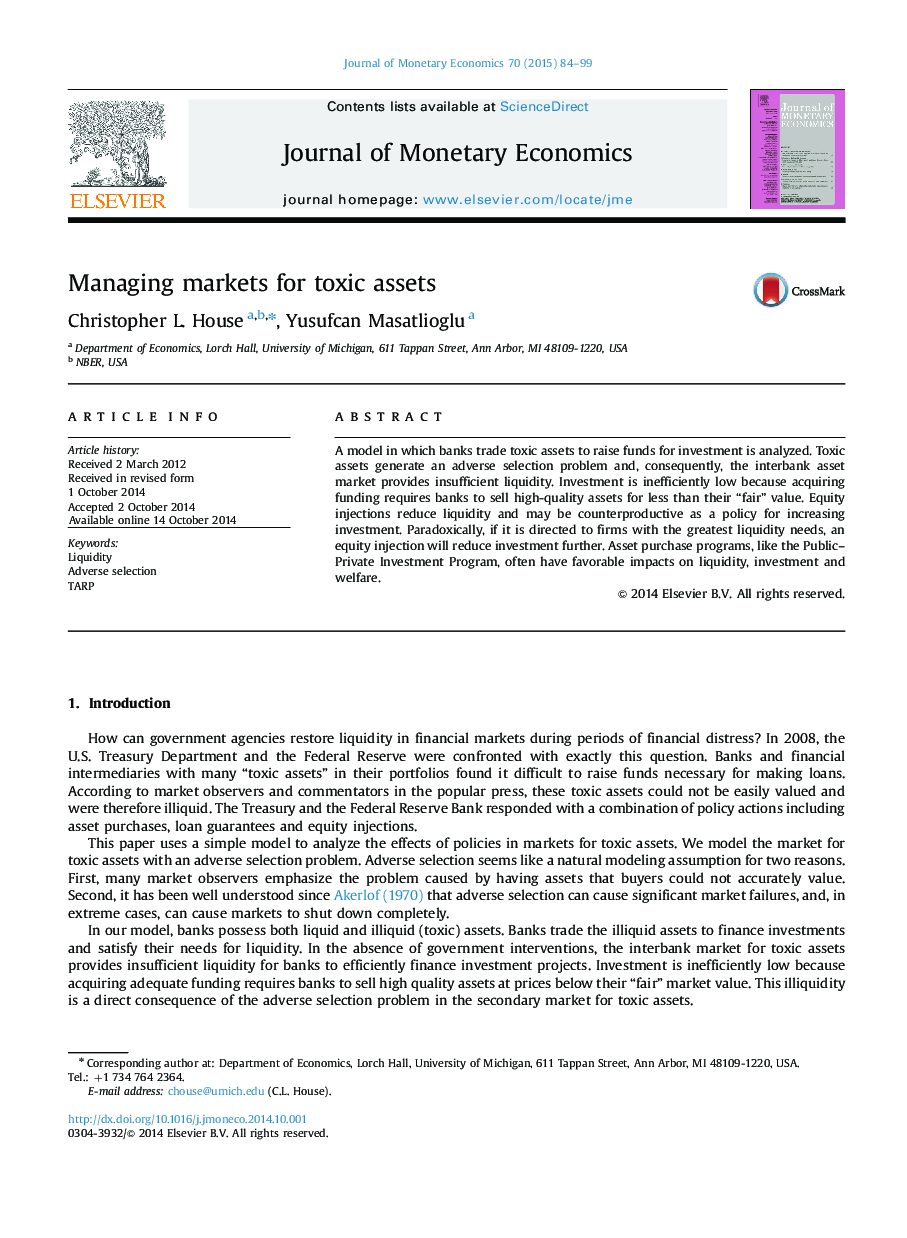| Article ID | Journal | Published Year | Pages | File Type |
|---|---|---|---|---|
| 966500 | Journal of Monetary Economics | 2015 | 16 Pages |
Abstract
A model in which banks trade toxic assets to raise funds for investment is analyzed. Toxic assets generate an adverse selection problem and, consequently, the interbank asset market provides insufficient liquidity. Investment is inefficiently low because acquiring funding requires banks to sell high-quality assets for less than their “fair” value. Equity injections reduce liquidity and may be counterproductive as a policy for increasing investment. Paradoxically, if it is directed to firms with the greatest liquidity needs, an equity injection will reduce investment further. Asset purchase programs, like the Public-Private Investment Program, often have favorable impacts on liquidity, investment and welfare.
Keywords
Related Topics
Social Sciences and Humanities
Economics, Econometrics and Finance
Economics and Econometrics
Authors
Christopher L. House, Yusufcan Masatlioglu,
